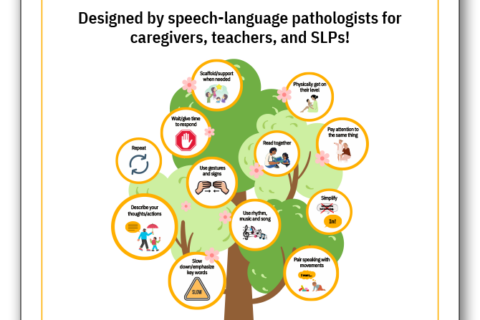8 Warning Signs Of Speech Delay In Children

A child’s journey to become verbally proficient is marked by a significant turning point when they emerge from the complex terrain of childhood development. While each child progresses at their own pace, there are 8 warning signs of speech delay, when recognized early, can pave the way for proactive intervention and support. It is crucial for parents and other caregivers to recognize these indicators, as they provide a guide for navigating the challenges associated with speech delay.
Limited Vocabulary for Age
One of the initial warning signs of speech delay is an observable limitation in a child’s vocabulary for their age. While children naturally develop their vocabulary over time, a persistent lag in acquiring new words or an inability to express themselves verbally may indicate potential challenges in speech development.
Difficulty Pronouncing Words
Clear pronunciation is a key aspect of speech development. If a child consistently struggles to pronounce words or experiences difficulty forming sounds appropriate for their age, it could be a red flag for speech delay. Precision in articulation is crucial for effective communication, and any noticeable challenges should be addressed promptly.
Lack of Age-Appropriate Sentence Structure
As children grow, so does their ability to form more complex sentence structures. Warning signs of speech delay include a consistent difficulty in constructing age-appropriate sentences. If a child is unable to convey thoughts coherently or struggles with sentence complexity, it may indicate challenges in language development.
Limited Social Interaction
Speech is not only a tool for self-expression but also a conduit for social interaction. Children with speech delays may exhibit signs of social withdrawal due to communication barriers. Limited engagement in conversations or difficulty initiating interactions with peers could signal underlying challenges in speech development.
Frustration or Behavioral Issues
In some cases, speech delays may manifest as frustration or behavioral issues. Children struggling to articulate their thoughts may become frustrated, leading to temper tantrums or behavioral outbursts. Recognizing these emotional cues is crucial, as they can provide insights into the child’s internal struggle with communication.
Inconsistent Response to Sounds
Speech delays can sometimes be linked to auditory processing challenges. If a child consistently exhibits an inconsistent response to sounds, such as not reacting to their name being called or showing difficulty following simple verbal instructions, it may be indicative of speech and language difficulties.
Lack of Babbling in Infancy
Babbling is a natural and essential precursor to speech development. The absence of babbling in infancy can be an early warning sign of potential speech delays. Caregivers should monitor for the emergence of varied vocalizations and the progression from babbling to more structured speech sounds.
Limited Imitation of Speech Sounds
Imitation plays a crucial role in language acquisition. Children with speech delays may exhibit limitations in imitating speech sounds. Difficulty mimicking sounds or patterns, especially when encouraged by caregivers, could be indicative of challenges in the development of speech skills.
Recognizing these warning signs early is the first step toward proactive intervention. Pediatric speech & voice therapy emerges as a vital resource in addressing the challenges of speech delay. Our therapists in Open Lines® specialize in pediatric care and utilize targeted exercises, interactive activities, and personalized strategies to enhance a child’s language skills.
Integrating pediatric speech & voice therapy into the intervention plan empowers children to overcome the hurdles of speech delay. Our therapists work collaboratively with families, providing tools and techniques to foster effective communication and build confidence in verbal expression.
If you’re struggling with communication difficulties, it’s time to turn to Open Lines®. Contact us via phone (212-430-6800), email [email protected], or by filling out our convenient contact form. Improve your communication skills and unlock your potential with Open Lines® Speech and Communication in New York today!
Get in Touch With Open Lines®














